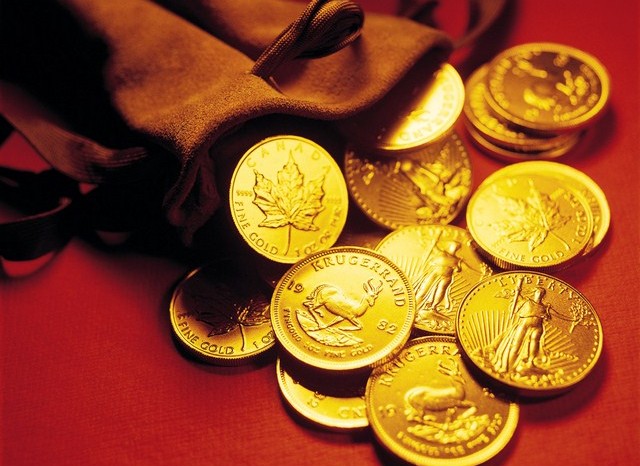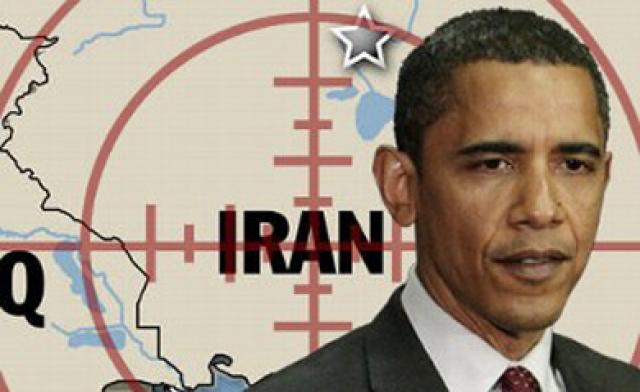Turkey’s Illegal Gold Trade with Iran
In our Iconoclast post on Harold Rhode’s speculations regarding a possible alliance of convenience between the Gulenists and Secularists that might topple Premier Erdogan, he drew attention to the illicit gold trading conducted by the state-owned Halkbank. Suleyman Aslan, the head of Halkbank at the center of the illicit gold trading had been prominent among the 52 arrested in the swirl of events in the current Turkish corruption scandal. Jonathan Schanzer and Mark Dubowitz of the Washington, DC-based Foundation for Defense of Democracy published an article in Foreign Policy Magazine (FPM) covering research into the “gas for gold ” scheme that the Obama Administration failed to stop, “Iran’s Turkish Gold Rush”.
Messrs. Schanzer and Dubowitz drew attention to the two principals at the center of the gas for gold trade between Turkey and Iran:
The drama surrounding two personalities are particularly eye-popping: Police reportedly discovered shoe boxes containing $4.5 million in the home of Suleyman Aslan, the CEO of state-owned Halkbank, and also arrested Reza Zarrab, an [Azeri] Iranian businessman who primarily deals in the gold trade, and who allegedly oversaw deals worth almost $10 billion last year alone.
The FPM article on the Turkey Iran ‘gas for gold” trade described how it worked:
The Turks exported some $13 billion of gold to Tehran directly, or through the UAE, between March 2012 and July 2013. In return, the Turks received Iranian natural gas and oil. But because sanctions prevented Iran from getting paid in dollars or euros, the Turks allowed Tehran to buy gold with their Turkish lira — and that gold found its way back to Iranian coffers.
Earlier this year in May 2013 the FDD teamed with Roubini Global Economics and conducted an investigation into the dynamics of the gold trade and its significant alleviation of currency restrictions under sanctions against Iran’s nuclear program. The FDD report, “Iran’s Golden Loophole” indicated the scope and impact of the gas for gold scheme:
These foreign exchange reserves are Iran’s principal hedge against a severe balance of payments crisis, and help Iran withstand international pressure over its nuclear program. Since July 30, 2012, when the Obama administration issued an executive order prohibiting gold exports to the government of Iran, Iran has received over $6 billion in payment in gold for its energy exports—the value of the lack of enforcement of the golden loophole—mainly as gold payments to the Central Bank of Iran. These gold exports to the Central Bank of Iran already are a sanctionable activity under existing U.S. law; gold exports to any entity in Iran will become sanction able as of July 1, 2013. This report estimates that, unless gold sanctions are enforced, Iran could receive up to $20 billion a year, representing around thirty percent of Iran’s projected 2013 energy exports.
Schanzer and Dubowitz questioned why Turkey, a NATO ally of the US, had engaged in the Gold trade with Iran, and why the Obama Administration hadn’t closed it:
The Turks — NATO allies who have assured Washington that they oppose Iran’s military-nuclear program — brazenly conducted these massive gold transactions even after the Obama administration tightened sanctions on Iran’s precious metals trade in July 2012.
Turkey, however, chose to exploit a loophole that technically permitted the transfer of billions of dollars of gold to so-called “private” entities in Iran. Iranian Ambassador to Turkey Ali Reza Bikdeli recently praised Halkbank for its “smart management decisions in recent years [that] have played an important role in Iranian-Turkish relations.” Halkbank insists that its role in these transactions was entirely legal.
The U.S. Congress and President Obama closed this “golden loophole” in January 2013. At the time, the Obama administration could have taken action against state-owned Halkbank, which processed these sanctions-busting transactions, using the sanctions already in place to cut the bank off from the U.S. financial system. Instead, the administration lobbied to make sure the legislation that closed this loophole did not take effect for six months — effectively ensuring that the gold transactions continued apace until July 1. That helped Iran accrue billions of dollars more in gold, further undermining the sanctions regime.
In defending its decision not to enforce its own sanctions, the Obama administration insisted that Turkey only transferred gold to private Iranian citizens. The administration argued that, as a result, this wasn’t an explicit violation of its executive order.
Perhaps as the authors point out, the Administration had other concerns not disturbing the relations with the Erdogan regime regarding the latter’s role in the regional alliance contending with the 33 month Syrian civil war . There was Turkey’s support for rebel factions and the safe haven it provided the massive stream of 1.5 million refugees. However could it have been the nearly $6 billion “they estimate the golden loophole” could have provided Iran in the way of an ”olive branch” used during the secret negotiations by the Obama Administration that led up to the November 24, 2013 P5+1 interim agreement?
According to a Zaman Today article, cited by the authors, the illicit “gas for gold” trade between Iran could be vastly more significant: “The suspicious transactions between Iran and Turkey could exceed $119 billion — nine times the total of gas-for-gold transactions reported. “
There are suspicions about whether the “gas for gold” scheme enabled Iran to pay for machinery used in the production a new class of centrifuges announced by AEOI head Ali Akbar Salehi this week. Then there is the question of payments for Russian contractors and personnel engaged in projects like the Arak heavy water reactor that would enable Iran to produce plutonium. And lest we also not forget could have been used to fund payments in the waivers granted by the US for the Iranian oil trade with China and others. Clearly, the current corruption probe in Turkey may lift the veil on a vast underworld of transactions with Turkey that may have enabled Iran to continue, if not accelerate, achievement of their nuclear weapons program objective: nuclear hegemony destabilizing the Middle East and the World.
EDITORS NOTE: This column originally appeared on The New English Review.


